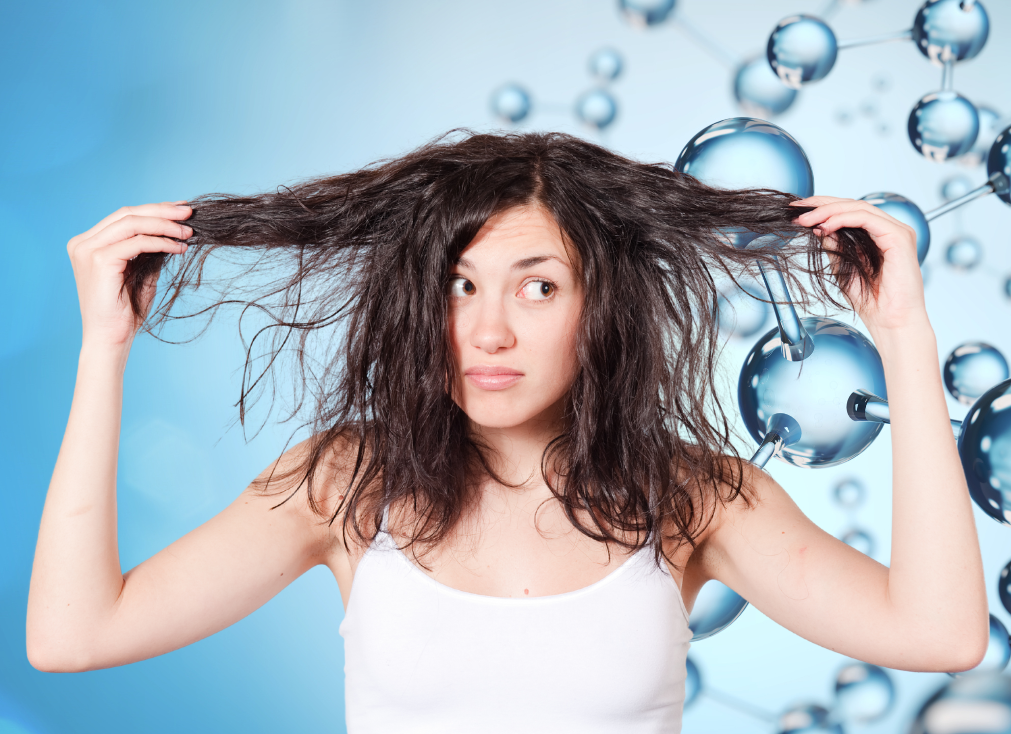
“Without that array of cosmetic alcohols, many of your products would be noticeably subpar, if not simply ineffective.“
- Elizabeth Zitvogel

Decoding your Products: Alcohol
Have you ever looked at the back of one of your hair products and been confronted with unpronounceable ingredients and more alcohol than your local bar?
The immediate thought is, “Well, that can’t be too good for my hair.”
But not so fast! Without that array of cosmetic alcohols, many of your products would be noticeably subpar, if not simply ineffective.
To start off, all alcohols fall into one of two categories: long-chain alcohols or short-chain alcohols. Be careful not to label these as “good” or “bad”; it’s not quite as simple as that.
Short-chain alcohols have molecules small enough to penetrate the hair shaft, making them perfect little “taxis” for other ingredients that would normally not have been absorbed on their own. They also provide a fast-drying, oil-dissolving effect and are perfect for products that require the least amount of oil to function properly.
Some of the more common short-chain alcohols would be listed under these names:
Ethyl Alcohol: Sometimes just written as “alcohol,” this ingredient is procured from corn or sugarcane. It can act as a preservative or a “fast dry” agent in products such as dry shampoos, volumizers, or Moroccan Oily Scalp Treatments.
Alcohol Denat is a very common short-chain alcohol usually used where its oil-dissolving properties are the most helpful. Think of your Oway sea salt spray, Moroccan dry texture sprays, dry Shampoos, or Moroccan hair spray with extra hold. Those of us with hair on the naturally drier side might want to use products with this alcohol sparingly.
On the flip side, we have the long-chain alcohols. Needless to say, these molecules are longer (12 more carbons per molecule, for anyone who would like to know), making them too large to penetrate the hair shaft. The result is that these alcohols are much more oily than their shorter-chained cousins and serve different purposes.
Some of the more common long-chain alcohols you might see would be listed under these names:
Cetearyl Alcohol is a mix of 2 naturally occurring fatty acids found in plants and animals. It is most often obtained from coconut oil and is perfect for creating a thick layer of moisture on the hair. Think of your heavier hair masks and leave-ins, such as the K18 peptide mask, Olaplex # 3, or Moroccan All-in-One Leave-in conditioner.
Behenyl Alcohol is generally derived from corn and can be used as a thickener for curl creams such as Oway’s Curly Potion or, more commonly, as an emulsifier in products like Fortifi Intelligent Nutrients shampoo and conditioner.
Lauryl Alcohol is mainly extracted from coconut or palm kernel oils. This alcohol is not only used as an emulsifier but also as a cleansing agent in many shampoos and for moisture retention in many conditioners.
Take Away
If your hair is naturally dry or has been compromised, long-chain alcohols are a great way to add and keep in moisture. But if your hair seems to always need a wash, short-chain alcohols are just the thing to dry up that extra oil and get a few more days out of that wash!
All cosmetic alcohols serve a purpose, and staying informed can help you choose the best products for your hair.
Hair Care Services
Sponsored Links
About the Author

Elizabeth Zitvogel
Elizabeth Zitvogel is a Licensed Cosmetologist with extensive training in all aspects of hair styling and coloring. She specializes in regular and organic color and highlighting, as well as ombre application. Elizabeth also possesses creative techniques with blowouts and up-dos.









